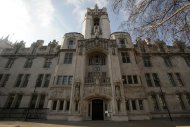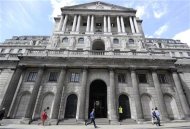Sex offenders can appeal against having to register with police for life from Saturday, despite concerns raised by a children's charity that they must "always be considered a risk".
Thousands of sex offenders will be able to apply to have their names removed after the Supreme Court ruled it was a breach of offenders' human rights to be put on the register for life with no review.
The Government has already expressed concern about the plans, with Home Secretary Theresa May saying "the minimum possible changes to the law" would be made.
Currently prisoners have to wait 15 years after being released from jail to be able to apply to be removed from the register. Saturday marks 15 years since sex offenders were first required to register with police.
Chief executive of the NSPCC Andrew Flanagan said: "This is a concerning day for our justice system. Sadly, we are told this legal ruling cannot be overturned but the NSPCC's view remains that paedophiles who have been put on the sex offender register for life must remain there as we can never be sure their behaviour will change.
"There is no proven or recognised 'cure' for adult sex offenders who abuse children and they must therefore always be considered a risk. We can only try to control and contain their behaviour through a combination of treatment and monitoring by the authorities if they are released back into the community.
"Physical and emotional harm caused by sexual abuse can damage children's lives. We will monitor the appeals process closely and will raise concerns if we believe the civil liberties of convicted sex offenders are being put before the protection of children."
The maximum number of sex offenders eligible for a review each year was estimated at 1,200 by the Government. Individual police forces will consider applications.
Plans were outlined by Mrs May last year to toughen up registration requirements for sex offenders after the Supreme Court ruling. They included having to tell authorities before travelling abroad even for a day, reporting if they were living with children and tightening rules to stop offenders avoiding registering after changing their name.
A Home Office spokesman said: "We are doing everything we can to protect the public from predatory sex offenders. That is why we have taken action to strengthen the law and close loopholes. The review process for offenders is robust and puts public protection first. It also prevents sex offenders from wasting taxpayers' money by repeatedly challenging our laws. Sex offenders who continue to pose a risk will remain on the register for life."


















